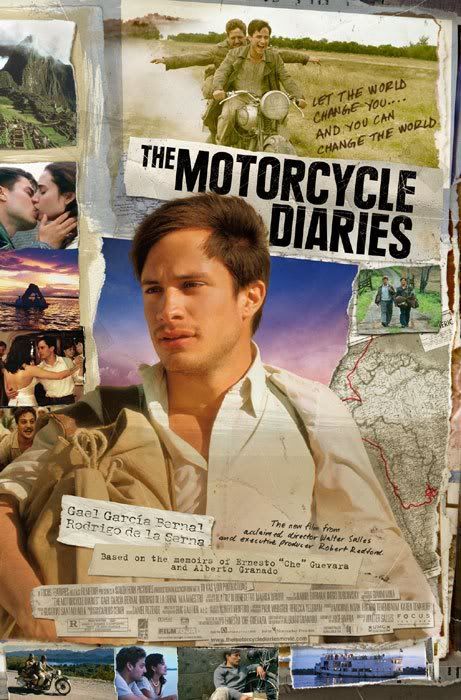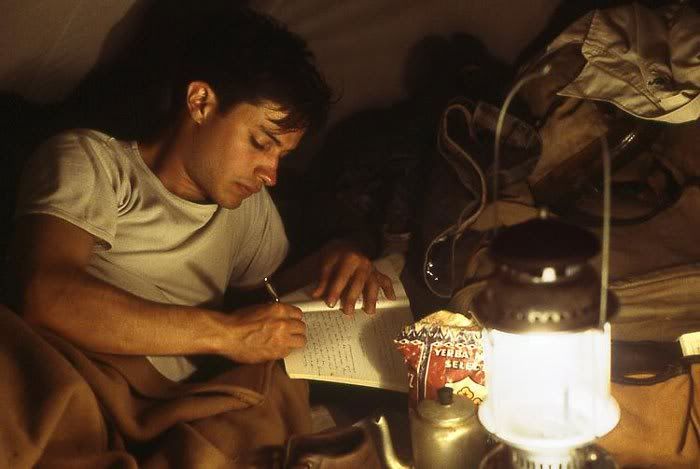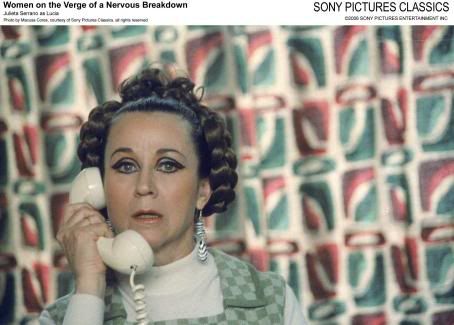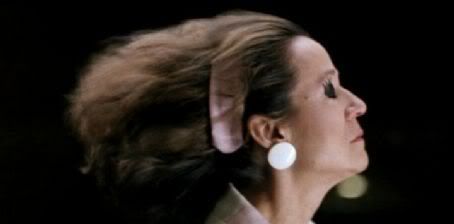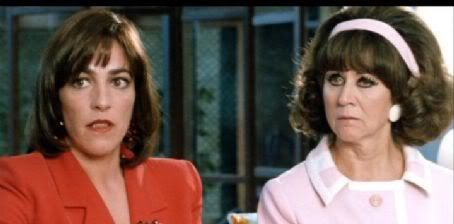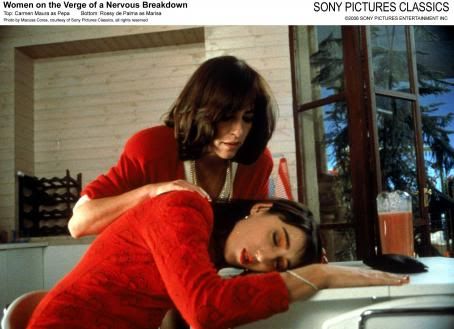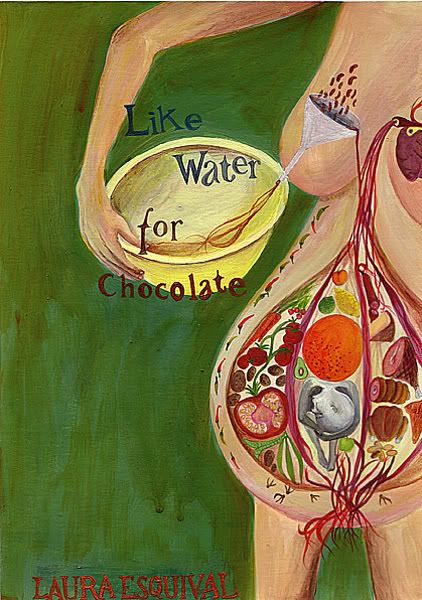
Good film, wasn't what I expected, but good film. I would like to focus on the themes that I saw in the film.
Magic realism was shown throughout the film. It actually started at the very beginning of the film when Mama Elena was giving birth to Tita. The water that was gushing out when she was delivering her was definitely reality mixed with nonexistence. Although most know that when you are getting ready to give birth, a woman's water will break, however, it will not cause a flood!
The next scene that showed magic realism was at Rosaura's wedding when everyone was eating the cake. Yes, Tita had cried over the batter and got tears in the batter, however, it is completely impossible for those tears to cause everyone who is eating the cake to cry like babies. However, the realism is the fact that people do cry at weddings, but it definitely isn't due to tears being in the batter!
Another scene was when Pedro gives the flowers to Tita for her one year anniversary of being the head cook. Mama Elena told Tita to throw them away, but the spirit of Nacha told Tita to make quails and rose sauce. The food was like an aphrodisiac, Pedro said, "This is the nectar of the gods", Rosaura gets sick, Mama Elena starts having funny feelings, but claims there is too much salt, and Gertrudis starts having an orgasm and runs to the outhouse to have a hot shower. To top it off, Gertrudis emitted a scent that traveled afar, and a Villista solider went out to seek it. Gertrudis is running the land naked and gets swooped up by the Villista solider and never comes back (at least for a while).

I saw Duty vs. Desire. Tita had a duty to cook. Mama Elena, was unable to produce milk due to shock at the recent death of her husband and consequently hands off Tita almost immediately to the house cook, Nacha, who rears Tita in the kitchen. Surrounded by the colors, smells, and routines of Nacha's kitchen, Tita grows up understanding the world in terms of food. She enjoys her isolation in the domain of the kitchen. Although Tita felt the duty of cooking especially since she was more expirenced than her two sisters, Tita had the desire to have freedom. Freedom to do as she chose to do. Tita had the desire to be loved, to get married, and have children. All of which she would not achieve under the steel hands of her mother.

Another theme would be family relationsihps. The relationship between Tita and her mother was not a good relationship. Although it seemed that the family was a tight nit family, it really wasn't. The only child that Mama Elena had that actually cared about her was Rosaura. Gertrudis was not impressed with her mother, nor was she going to live by her mothers ways. She proved that when she left the ranch and went to work in the brothel, and eventually became a general. Tita was not happy with her destiny of never marrying because she was the youngest, and the family tradition of the youngest daughter taking care of the mother until the mother's death.

The above picture represents the power that Mama Elena has over Gertrudis. When Gertrudis ran away with a Villista soldier, Mama Elena also found out from Father Ignacio that Gertrudis was working in a brothel near the border. Mama Elena was outraged and felt betrayed and disrespected. Therefore, she decided to burn all of Gertrudis’s photos and her birth certificate. Gertrudis brought upon shame to her mother. It symbolizes the power and negative effects that Mama Elena has over her children. I think that the actual burning of the birth certificate establishes Mama Elena's strength to ruin her children's lives if they ever betray or disrespect her, the fire, which occurs multiple times throughout the film, is a symbol that represents passion and destruction.

Tita tries to hide her pain in her cooking. The kitchen represents the outlet that Tita uses to escape her mother. It is her sanctuary that eliminates all the madness and chaos that surrounds her. The tools that are in the kitchen represent ways in which she can perfect her recipes and therefore cook in order to forget about her problems.

Even in death, Mama Elena is still trying to control Tita. She is still watching over Tita and wants to control her every action with Pedro. Mama Elena tells Tita not to see Pedro anymore and puts a curse on Tita’s unborn baby and Tita. Mama Elena is not giving up; and even though Tita finally told her to go away that she hates her, she leaves Tita, but tortures Pedro by catching him on fire, another symbol of destruction.

This final scene takes place at the end of the film. Pedro and Tita were intimate and were finally able to share there love without it being forbidden. It had taken them twenty-two years to get to this point. In the middle of their love scene Pedro dies. Tita then makes herself spontaneously combust by eating matches. This relates back to what the Doctor said about love and matches in the middle of the film. He states, “If one intense emotion were to light the matches all at once there would be a divine radiance.” This means that Tita was finally able to experience all her emotions for Pedro and when he died she could no longer be without him. Therefore, she sparks her emotions with the matches and then kills herself.

The fire symbolizes passion and destruction and suggests that the passion between Pedro and Tita was all consuming, just like the flames of the fire.
Esperanza's daughter stated that when her mother came back from her honeymoon, all she found under what remained of the ranch was a cookbook. Esperanza left that for her daughter when she died because it tells the story of the buried love between Tita and Pedro, and as long as the recipes are still being made, their love will continue to live.
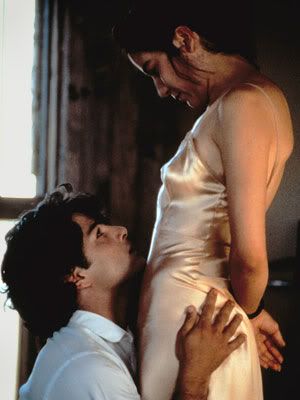
Written by:

Read more: http://www.mylivesignature.com/mls_wizard2_1.php?sid=54488-140-53DCE714840366D175AD57262D577C9B##ixzz0mOniW0TT
